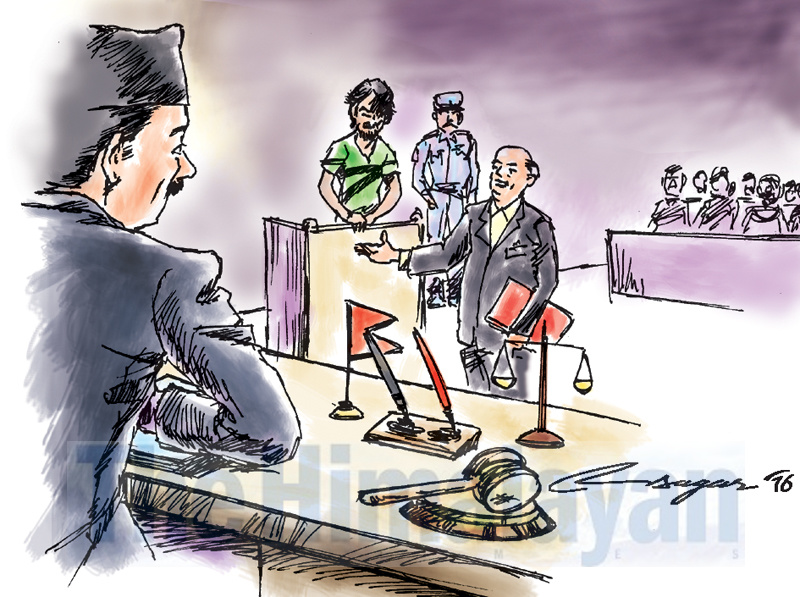Cooperation between crime investigators, prosecutors stressed
Kathmandu, June 15
A two-day conference of police officers and government attorneys concluded here by adopting a 21-point declaration today.
According to Nepal Police, the conference was a platform for resolving differences arising between police (investigators) and government attorneys (prosecutors) in the course of delivering justice to crime victims. It also developed a common assumption on crime investigation and prosecution.
Speaking at the concluding session, Patan High Court Judge Kiran Paudel stressed the need for police investigators, prosecutors and medical and legal officers to work together to ensure that physical evidences are not destroyed at the crime scene. “Police and government attorneys are complementary in criminal justice administration to give both the perpetrators and victims a sense of justice,” he said.
Joint Attorney Shyam Kumar Bhattarai said the conference would help develop healthy coordination between police officers and government attorneys to make crime investigation and prosecution more effective in the days to come.
“Both investigators and prosecutors have a common goal and should work together for effective criminal justice system in the country by complying with the constitution and prevailing laws,” he stated.
Forensic expert Harihar Wasti said coordination between investigators and prosecutors from the beginning of crime investigation would help protect and collect physical evidences.
DIG Surya Prasad Upadhyay at the Crime Investigation Department of Nepal Police said the conference would be a catalyst for strengthening coordination and collaboration between investigators and prosecutors to mark a new beginning in the criminal justice system.
A common misunderstanding between police officers and government attorneys is that the former often blame the latter of weakening the charges filed at the court so as to let the suspects off the hook. Government attorneys also accuse police of failing to conduct effective and evidence-based investigation before asking the former to file a case. Such conflict between investigators and prosecutors often lead the court either to hand down lenient punishment or order the release of the guilty.






